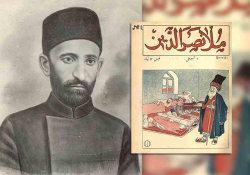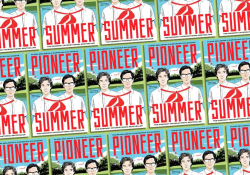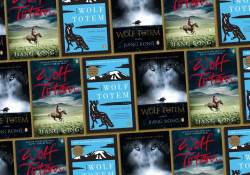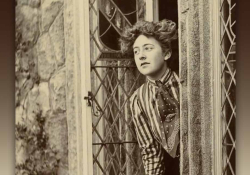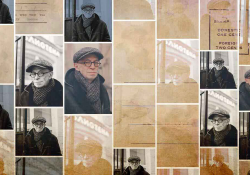Absenting the Self: Charlotte Mandell on Translating Mathias Énard
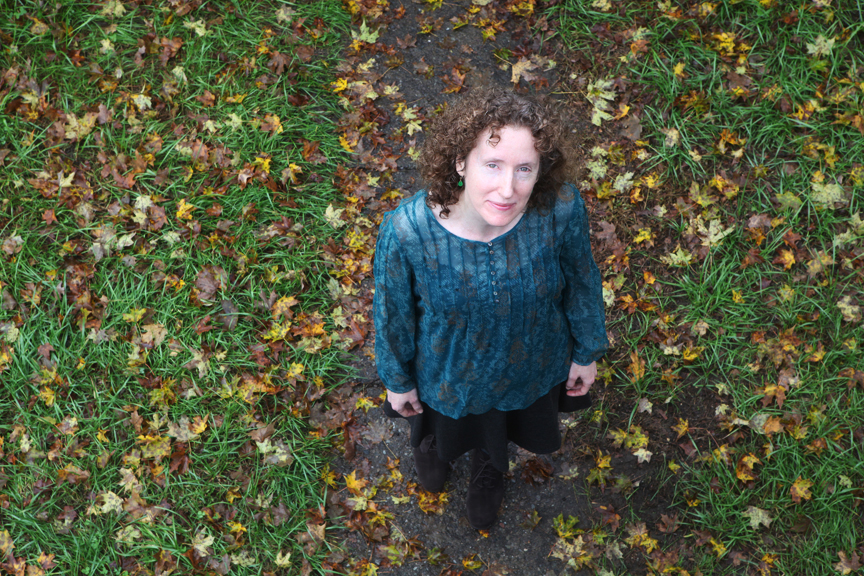
Mathias Énard’s Compass (New Directions, 2017) is not only a love letter to the field of orientalism but, more broadly, to the power of the written word itself, especially in translation. I became fascinated by the panoply of creative decisions that must have gone into translating it from French into English, while navigating all the other languages (Persian, Arabic, German) that fill its nooks and crannies. In order to satisfy some of that curiosity, after reviewing the book, I reached out to Énard’s traductrice attitrée, Charlotte Mandell, to find out more about her training and work as a translator as well as the eccentricities of bringing this particular book to anglophone readers.
Rob Vollmar: Could you tell us a little about how you got interested in translation and your training in preparation to be a literary translator?
Charlotte Mandell: It’s something of a long story. My parents were both university professors, so we had summers off, and since my father was interested in all things French (he wrote his master’s thesis on a little-known playwright named Henri-René Lenormand), starting when I was ten, we would spend every other summer in either the Swiss or the French Alps. So that’s how I got interested in French.
Later on, I attended Boston Latin High School—the oldest high school in America, founded in 1635—where studying Latin for five years is mandatory. Weirdly, I developed a liking for Latin, and for ancient Greek; in my advanced placement class in junior year we translated Virgil’s Aeneid, and I was hooked.
As a student at Bard College I majored in French (and minored in film theory, since my father used to bring films home to show them on a sheet on the wall—by the time I was a teenager I had seen Bergman’s Seventh Seal at least fifteen times) and continued to translate; my senior project (a book-length volume every senior has to write) was a translation of a book by the contemporary French poet Jean-Paul Auxeméry. During my junior year at Bard, I studied semiotics and film theory at the Université de Paris III. Derrida was lecturing then (this was in 1988–89), along with Julia Kristeva.
RV: Many of your early translations were nonfiction and/or French classics. Does your process for approaching older or nonfiction texts differ from contemporary fiction?
CM: Actually, my approach is almost always the same, regardless of whether or not the original is a classic: I always approach a book as if it had just been written, and as if it had never been translated before, or read in English. Translating for me is a living, breathing thing—Kate Briggs talks about this in her forthcoming essay on translation, This Little Art—and I need to act as if the book I’m translating is brand-new, fresh off the press. That way I become more invested in the act of translating it and more involved in the process. Translating for me is a very exciting process, regardless of whether the book is old or new.
RV: Compass is your third Énard novel in translation. How did you become aware of his work, and what attracted you to it as a potential object of translation?
CM: A long time ago—in 2008, I think—I read an excerpt from Zone in a digest published by the French Publishers’ Agency. I knew right away that I had to translate the book, and when I heard that Chad Post’s Open Letter Press was interested in publishing it, I wrote to him and basically begged him to allow me to translate it. Open Letter published both Zone and Street of Thieves, and I’m grateful to them for that.
For Compass, my publishers are Fitzcarraldo in the UK and New Directions in the US; working with Jacques Testard at Fitzcarraldo and Tynan Kogane at New Directions has been enlightening and enjoyable.
RV: Your first Énard translation, Zone (Open Letter, 2010), has been described as a “novel of essentially one endless sentence.” What were the challenges associated with translating a text without the normal sentence breaks one expects in a narrative?
CM: For me the main challenge in translating Zone was finding a good place to stop for the day—often I would lose track of time and would find I’d been sitting for far too long, and hadn’t eaten in hours. I don’t read ahead when I translate, so I’m always eager to find out what comes next in the book—so Zone turned out to be addictive in its stream-of-consciousness narrative and very hard to put down.
I like long sentences—that must be part of my Latin upbringing—they don’t intimidate me. On the contrary, they pull me in—it’s almost like a literary jigsaw puzzle, trying to figure out where a sentence is going, and trying to keep its rhythm and breath intact. Latin is famous for its endless, complex sentences; often the verb will come at the very end, which makes French sentences easy by comparison!
RV: Compass crosses so many registers in terms of the kinds of narratives it uses to deliver the story. To begin, did you spend a lot of time thinking about Franz Ritter as a character to capture his voice in English? Did you develop any ideas about him not made explicit in the text that shaped the way you wrote his internal monologue?
CM: Not at all. . . . Since I never read a book before I translate it, I didn’t have any preconceived notions about Franz; I met him as the reader meets him, for the first time. I let myself be guided by the text; the voice takes shape as I translate and eventually, as I get to know the narrator, becomes fully formed. Then the translation becomes easier, because I’m writing in Franz’s voice.
I’m a firm believer in the power of the text to dictate how it should be translated; I try to extricate my “self” as much as possible from the translation and to let the text tell me how it wants to be translated.
After I’m done with the first draft, I’ll go over and revise it several times; there will be at least three or four drafts of the book before I’m happy with the final version. I’m a firm believer in the power of the text to dictate how it should be translated; I try to extricate my “self” as much as possible from the translation and to let the text tell me how it wants to be translated. It’s a very Buddhist practice, actually, absenting myself from the process so the text can speak for itself.
RV: Énard is himself a translator, and Compass, to some extent, is a book about translation. Did bringing it from French into English inspire any insights into your own career as a translator and why you do what you do?
CM: Ritter is an avid reader and is curious about everything, both qualities that translators usually exhibit. I tend to fall in love with my characters the way Franz falls in love with Sarah, hopelessly and unrequitedly. Translating for me is as essential as breathing—it’s not something I could ever imagine renouncing. I think Franz (and, by extension, Énard) loves knowledge and literature and music in that same, passionate way.
I tend to fall in love with my characters the way Franz falls in love with Sarah, hopelessly and unrequitedly. Translating for me is as essential as breathing—it’s not something I could ever imagine renouncing.
RV: How much collaboration do you prefer with the author of the text you are translating? Does it vary from project to project, especially if the author of the original text is a translator himself?
CM: When I’m translating a book, I like to pretend the author doesn’t exist; I like to feel as if I’m writing the book as I’m translating it—in that way it becomes more alive, more of a living, breathing thing. So I don’t usually have much contact with the author as I’m translating it, unless I have a specific question about a word or a phrase—in that case, WhatsApp comes in handy, since it’s so immediate and easy to use.
When I’m translating a book, I like to pretend the author doesn’t exist; I like to feel as if I’m writing the book as I’m translating it.
When I’m satisfied with the final draft, I’ll send it to the author for his comments. Since Mathias is a translator himself, as you pointed out, he’s very good at giving me space and letting me work on my own; he doesn’t interfere at all. His English is excellent and I think he trusts me to find the right way of saying something. Usually it’s the authors with a poor knowledge of English who interfere the most. . . .
RV: What kind of process do you go through in deciding which projects to take on as a translator?
CM: If the writing is interesting, I will want to translate it. Plot doesn’t interest me so much; it’s the language that pulls me in and keeps me going. I can usually tell just from the first sentences of a book whether or not I want to translate it. That’s why I’m so happy to be Énard’s traductrice attitrée, his “official” translator; his books are always different—with different narrative voices and styles—but the writing is always excellent. I’m never bored when I translate Énard.
July 2017

